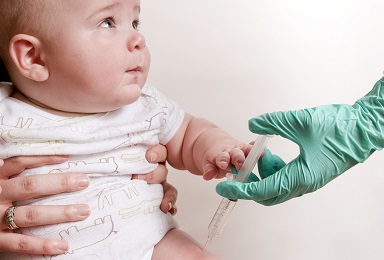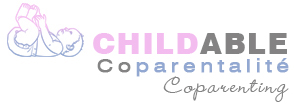Medical and Genetic Considerations Before Having a Child

Planning for a child is an exciting yet daunting task. While the anticipation of a new family member brings joy, there are several medical and genetic considerations prospective parents must bear in mind. Addressing these considerations can help ensure a healthy pregnancy and a robust start to a child’s life.
Family History
Understanding one’s family history is a cornerstone in planning for a healthy child. This process involves examining both partners’ genetic backgrounds to identify any hereditary diseases or conditions that may affect the unborn child. A comprehensive review of family medical history can uncover patterns of illnesses, such as genetic disorders, chronic diseases, and mental health conditions, providing valuable insights for prospective parents. Being aware of potential genetic risks allows couples to make informed decisions, seek appropriate medical advice, and take preventive measures to ensure the well-being of their future child. In essence, a thorough exploration of family history is instrumental in fostering a conducive environment for a child’s development and mitigating risks associated with hereditary conditions.
Genetic Screening
Genetic screening is a pivotal step for prospective parents, offering a window into potential genetic anomalies or chromosomal abnormalities that might affect their child. This process involves analyzing DNA to identify changes associated with inherited disorders, providing invaluable insights into the health of the future offspring. The knowledge gained from genetic screening allows parents to make informed decisions, manage expectations, and prepare for specific healthcare needs their child might require. In certain cases, it can guide medical interventions even before birth, significantly enhancing the child’s quality of life. Overall, genetic screening serves as a proactive approach to understanding and managing the genetic health of the upcoming generation, fostering preparedness and informed parenting.
Overall Health Status
Assessing the overall health status of both prospective parents is fundamental when planning for a child. The parents’ general health, including weight, diet, and the management of any chronic diseases, can significantly influence the child’s development and the pregnancy’s outcome. It is vital for parents-to-be to maintain a balanced diet, engage in regular physical activity, and manage stress levels to create a conducive environment for fetal growth. Addressing any pre-existing medical conditions, ensuring that both parents are in optimal health, and making necessary lifestyle adjustments are crucial steps. This not only contributes to a healthier pregnancy but also lays the foundation for the child’s long-term well-being. Regular check-ups and consultations with healthcare professionals are also recommended to monitor health status and receive personalized advice, enabling a safe and healthy journey to parenthood.
Age Consideration
Age is a significant factor in fertility and pregnancy outcomes, warranting careful consideration by prospective parents. Women’s fertility typically starts to decline in their late 20s to early 30s, with a more pronounced decrease from age 35 onwards. Advanced maternal age, generally considered 35 or older, is associated with increased risks of complications such as gestational diabetes, preeclampsia, and chromosomal abnormalities like Down Syndrome. Paternal age, too, can influence pregnancy outcomes, with research linking older paternal age to a variety of conditions. However, many individuals and couples successfully have healthy pregnancies and children at older ages, often aided by advancements in fertility treatments and prenatal care. Balancing the desire for parenthood with an understanding of age-related risks is key, and consulting healthcare providers can offer personalized advice and support in navigating these considerations.
Vaccination and Immunity
Ensuring up-to-date vaccination and robust immunity is crucial when preparing for a child. Vaccines play a vital role in protecting both the mother and the baby from a variety of preventable diseases, thereby contributing to a healthy pregnancy and infancy. Some infections can be particularly harmful during pregnancy, and vaccination provides an essential shield against such risks. It is important for prospective parents to consult healthcare providers to review their immunization status and receive any necessary vaccines well ahead of conception. Additionally, understanding maternal immunity helps protect the newborn during the initial months of life when the baby is still building its own immune system. In essence, prioritizing vaccination and immunity is a fundamental step in fostering a safe environment for the child and ensuring the well-being of the entire family.
Exposure to Toxins
Mitigating exposure to toxins is a fundamental consideration for individuals planning to have a child. Environmental and occupational toxins can adversely affect fertility, fetal development, and overall pregnancy outcomes. Both prospective parents should be aware of potential sources of harmful substances, such as lead, mercury, pesticides, and air pollutants, and take measures to reduce exposure. This might involve making changes in lifestyle, workplace, or home environment. Adopting a balanced and varied diet can also help in minimizing the intake of contaminants through food. Regular consultation with healthcare providers is essential for assessing individual risk levels and receiving personalized advice on preventive strategies. In essence, minimizing exposure to toxins is a proactive step towards safeguarding the health of both the parents and the child, laying the foundation for a healthy start to life.
Medication Review
A comprehensive medication review is essential for prospective parents in the planning phase of having a child. Certain medications, both prescription and over-the-counter, can impact fertility, pregnancy, and fetal development. It is crucial for individuals to disclose all medications they are taking to their healthcare providers, who can assess the risks and benefits and make necessary adjustments. In some cases, alternative therapies or adjustments in dosage may be recommended to ensure the safety of both the mother and the child. Additionally, women who are pregnant or trying to conceive should be particularly cautious with medication use, as some drugs can cross the placenta and affect the developing fetus. By working closely with healthcare professionals, prospective parents can optimize medication regimens to support a healthy conception, pregnancy, and child development, thereby laying the groundwork for the well-being of the future family member.
Lifestyle Choices
Adopting healthy lifestyle choices is indispensable for prospective parents planning for a child. Lifestyle factors such as smoking, alcohol consumption, and illicit drug use can significantly impact fertility and the overall health of both the mother and the baby. A balanced diet, regular physical activity, and maintaining a healthy weight are essential for optimizing reproductive health and ensuring a favorable environment for fetal development. Managing stress through mindfulness, exercise, or counseling can also contribute to a healthier pregnancy. It is paramount that future parents assess their lifestyle habits and make any necessary modifications well in advance of conception. By embracing a healthy lifestyle, prospective parents can significantly enhance their chances of conceiving and giving birth to a healthy child, fostering a positive foundation for family well-being.
Mental Health
Prioritizing mental health is a crucial aspect of planning for a child. Both parents’ mental well-being can significantly impact conception, pregnancy, and the child’s long-term development. Stress, anxiety, depression, and other mental health conditions can affect fertility and have been linked to various pregnancy complications. It’s essential for prospective parents to assess their mental health, seek professional advice if needed, and address any issues before conception. Managing mental health may involve therapy, medication, lifestyle changes, or a combination of these approaches, tailored to the individual’s specific needs. By nurturing mental well-being, parents-to-be can create a supportive and stable environment, laying a solid foundation for their child’s emotional and psychological development. In essence, addressing mental health considerations is a fundamental step towards ensuring a healthy family life.
Prenatal Consultation
A prenatal consultation is a vital step for those looking to start a family, providing prospective parents with personalized advice and guidance to ensure a healthy pregnancy and childbirth. This consultation allows healthcare providers to assess the overall health and medical history of both partners, address any pre-existing conditions, and discuss genetic and lifestyle considerations. It’s an opportune time to review medications, vaccination status, and any potential exposure to harmful substances. Moreover, healthcare providers can offer advice on nutrition, physical activity, and mental well-being, tailored to the specific needs of the individual or couple. This proactive approach helps in identifying and managing potential risks early on, fostering a supportive environment for both the mother and the baby. In essence, a prenatal consultation lays the groundwork for informed and mindful parenting, paving the way for a healthy and happy family life.
Embarking on the journey to parenthood requires meticulous planning and consideration.
By addressing medical and genetic factors, prospective parents can lay the groundwork for a healthy and joyful addition to the family. Seeking advice from healthcare professionals and making informed decisions are instrumental in navigating this rewarding life chapter.
